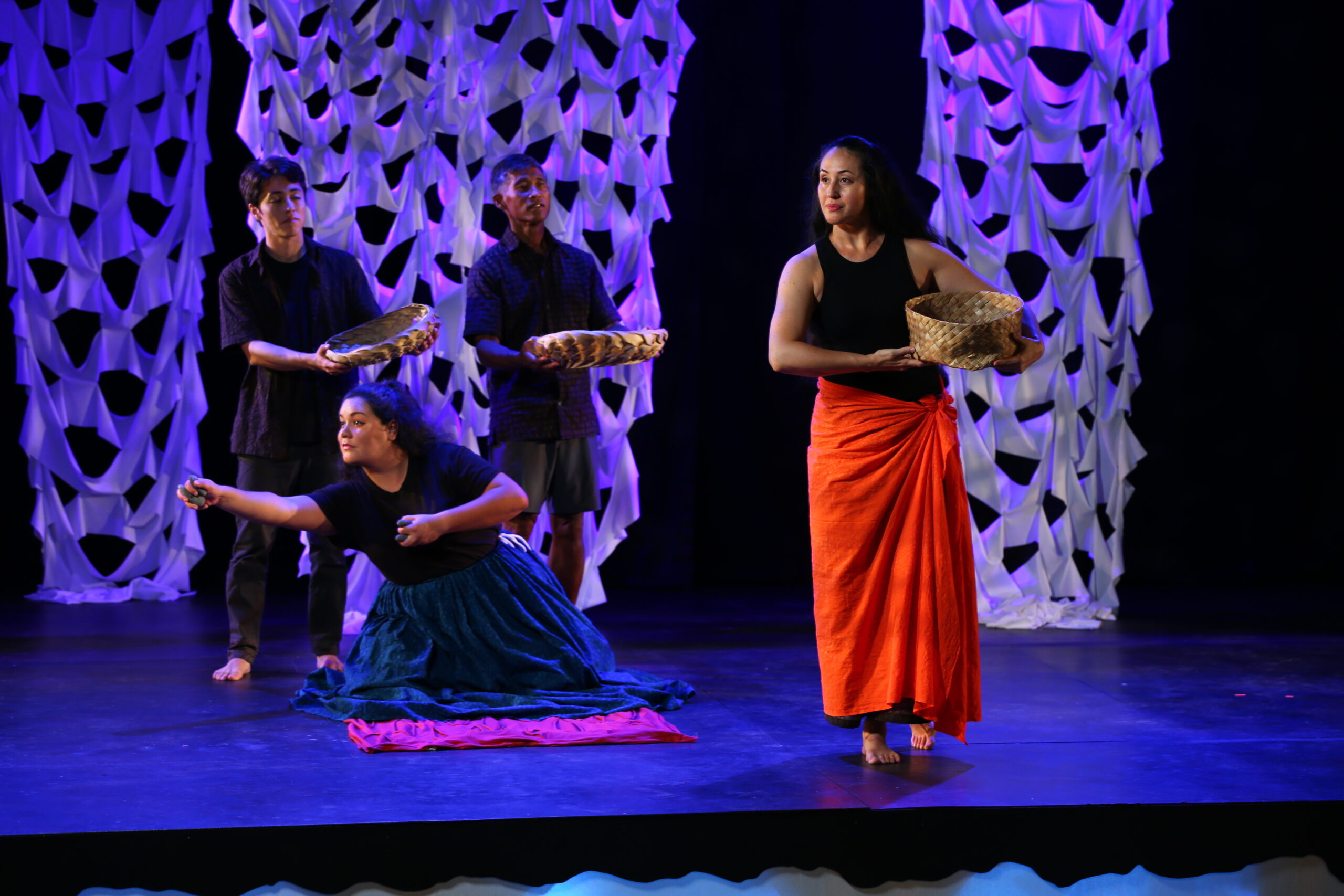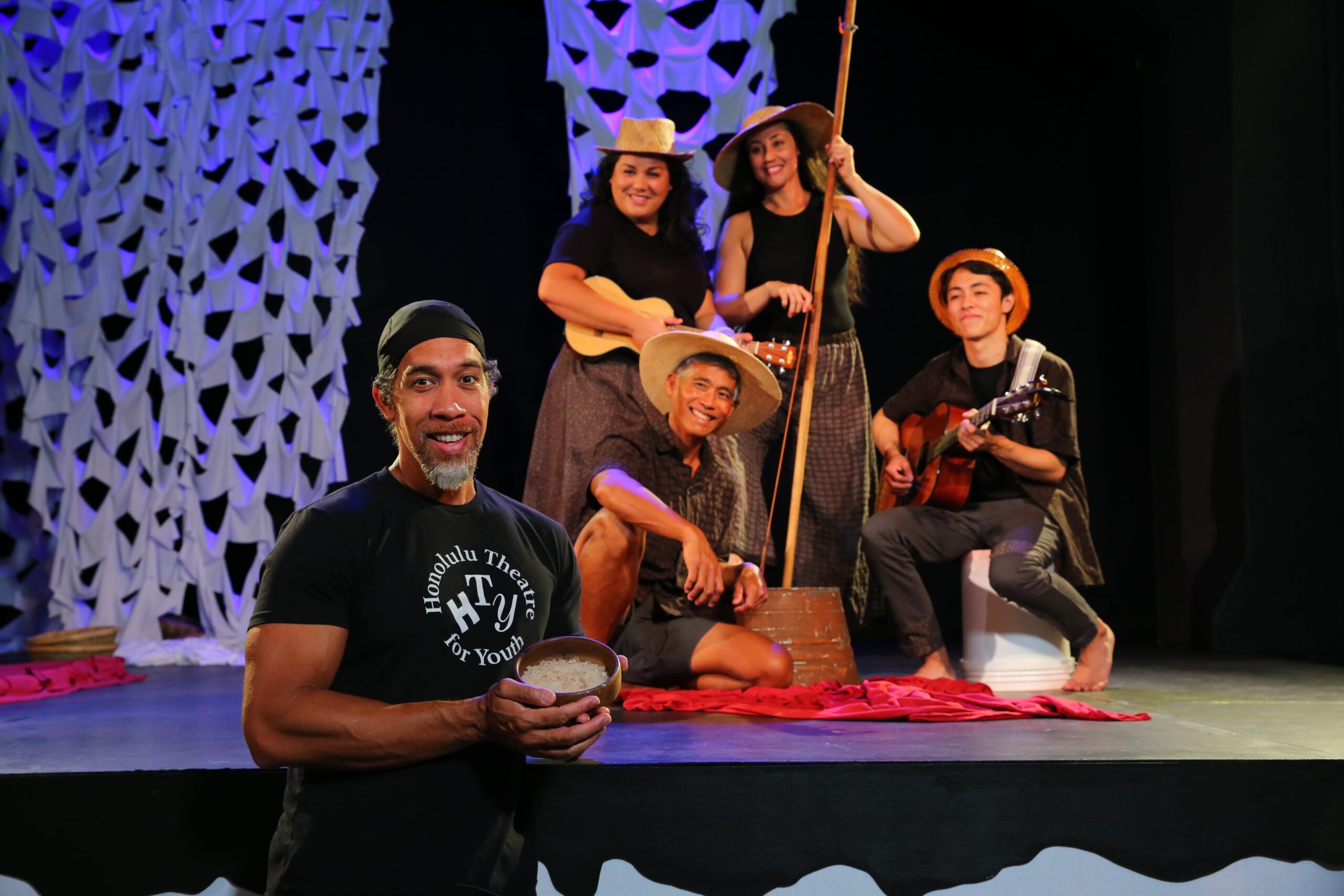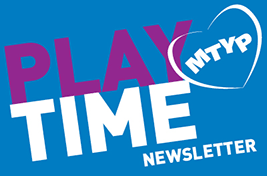
A PLAY FROM THE SALT BEDS OF HAWAI’I
MTYP’s Mainstage season finale is The Pa’akai We Bring from April 26-May 5.
Produced by Honolulu Theatre for Youth (Honolulu, Hawaii), this original production introduces young audiences to the Native Hawaiian relationship to pa’akai (salt). Pa’akai is food, medicine, a sacrament, and a treasured gift. The play follows multiple generations of salt farmers on Kauai, blending ancient stories, hula, original live music, and audience participation. The Pa’akai We Bring is a restorative experience for a multi-generational audience.
We asked The Pa’akai We Bring creator Moses Goods to describe how the show came to be.
The production was inspired by the real life stories of the twenty-six Hawaiian families who tend the Hanapēpē salt beds on the island of Kauaʻi. What about these stories felt that they needed to be told?
There was a time when salt harvesting was practiced in many communities throughout all the Hawaiian Islands. Today however, the families of Hanapēpē are the only community left that continues to uphold this tradition despite having faced hardships such as land development, tourism and climate change.
The families of Hanapēpē can also trace their tradition back to the origin of salt farming itself. According to our legends, it was right there at Hanapēpē that the fire goddess Pele shared the secret of salt harvesting with a woman who lived in the area and thus the tradition has been passed from generation to generation.
Can you talk about the live music in the show and some of the traditional instruments being used?
In the show we use both modern instruments and traditional ones. One of the scenes features a hula kuolo. Hula kuolo is a style of traditional hula that is danced seated and using an ipu heke (a percussive instrument made from fusing two large gourds together). The dancer drums a rhythm with the ipu heke to accompany the story being told with chant and hand motions.
Another instrument that we feature is the ʻohe hano ihu which is a bamboo flute that is only played with the breath from the nose and never the mouth. The thought behind this is that, with our mouths we may have said hurtful things or may have told lies which taints the purity of that breath. But the breath from our nostrils can never be used in such a harmful way so it’s believed to be pure.

I recently learned that in Hawaiian culture, one brings a gift when one attends a party or visits a friend’s house. Why is it important to show up with something in your culture?
Gift giving is essential but it’s important to define what a gift might be. A gift isn’t necessarily a physical thing. As stated in the show, a gift can be a willingness to help or any non-tangible offering. For me personally, a gift given to someone else, be it physical or otherwise should first and foremost add to the wellbeing of that person. The show itself is meant to be a gift to everyone who views it.
Most Canadians would view hula as a fun, welcome dance, but it’s actually a way to non-verbally communicate the history of Hawaii. Can you tell us more? Why does it matter to show a different side of Hawaii than is generally depicted in mainstream culture?
Sadly, hula has come to be used as a tool to promote the tourism industry and paint a picture of a “Hawaiian Paradise”. But for actual Hawaiians, hula is one of our strongest links to the past. Hula is a recording of the history of our people and helps us to gain an understanding of our ancestors, spiritually and culturally. My hope is that whoever sees this show will leave having learned that Hawaiian are a real people with a rich history and not just a vacation destination.
Why should parents bring their children to this show?
The show is fun! Although we tackle some very important issues we do so in an engaging way, something that Honolulu Theatre for Youth is very good at. There are interactive elements that invites the audience to join in and learn Hawaiian phrases, movements, and concepts. By design, this show is meant to be a vessel that brings joy and healing to every community that it plays for.
The Pa’akai We Bring runs on the MTYP Mainstage from April 26-May 5. Tickets can be purchased online or by calling the Box Office at 204-942-8898.

